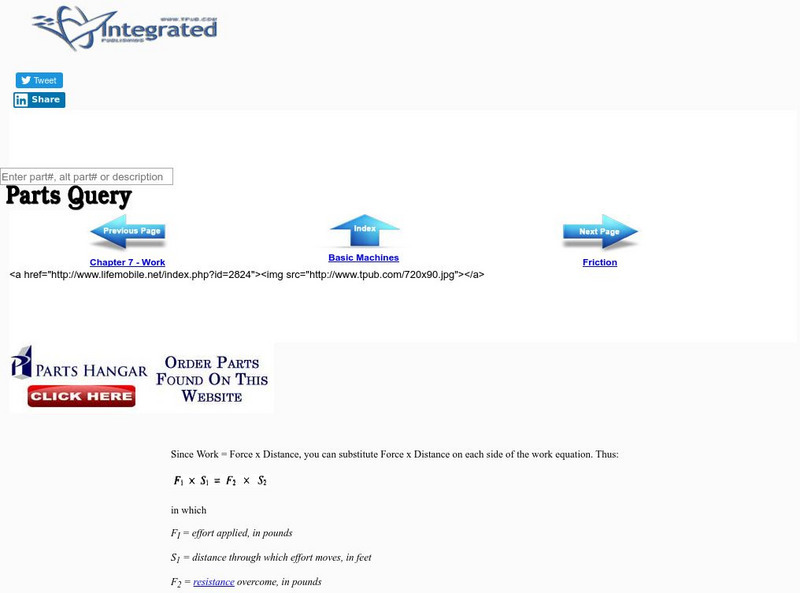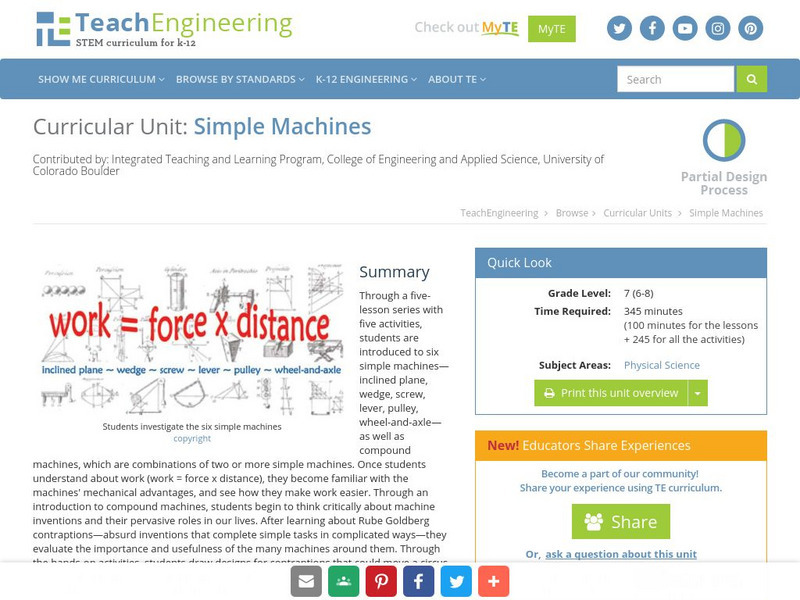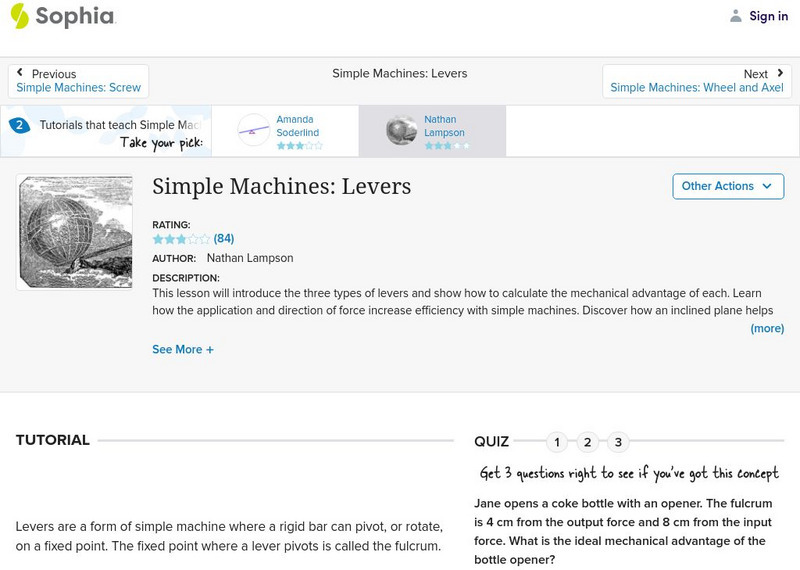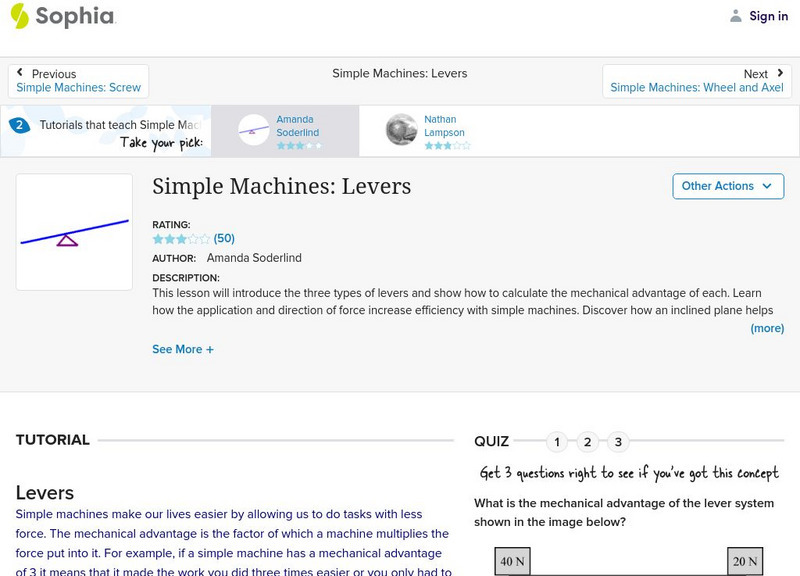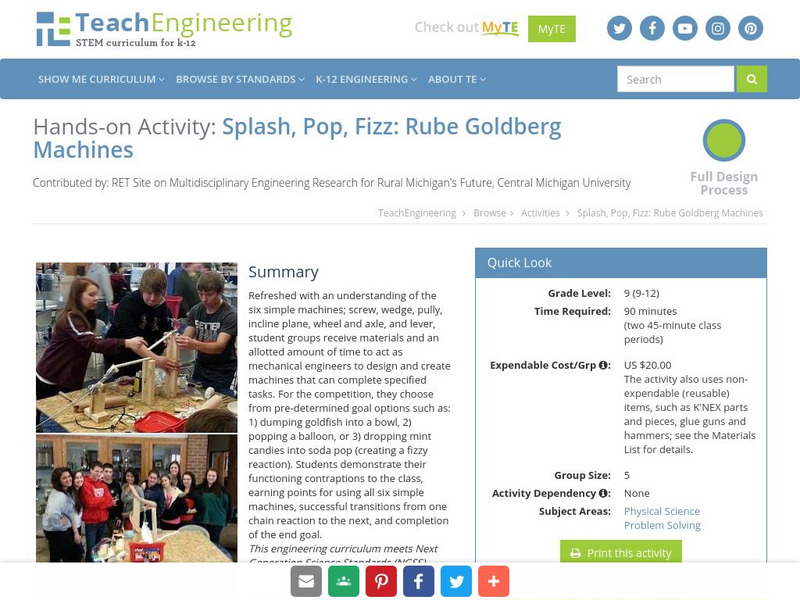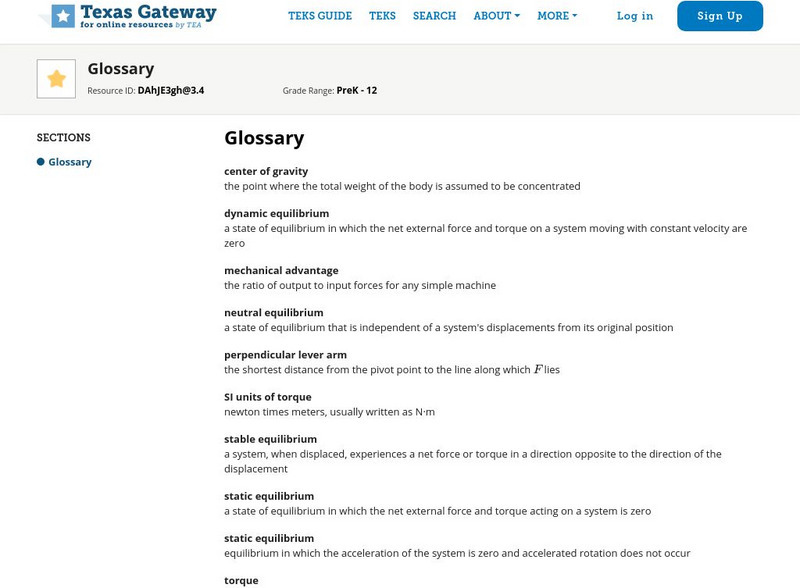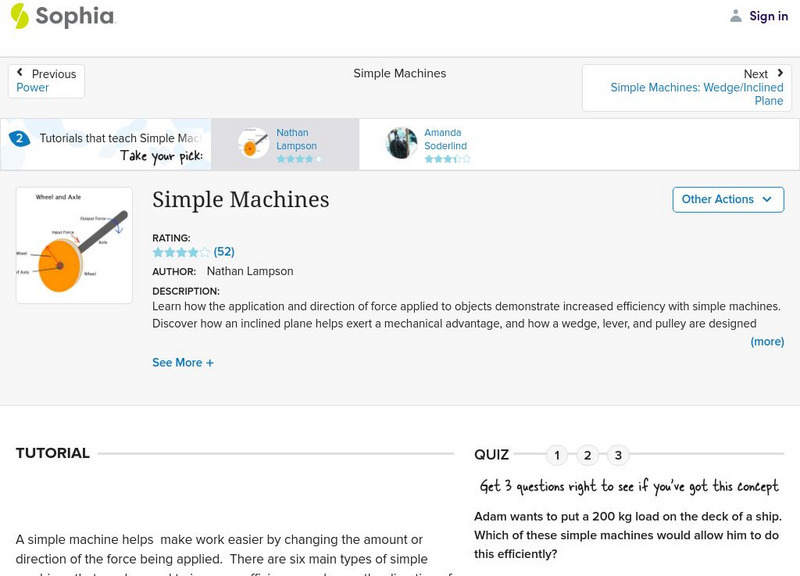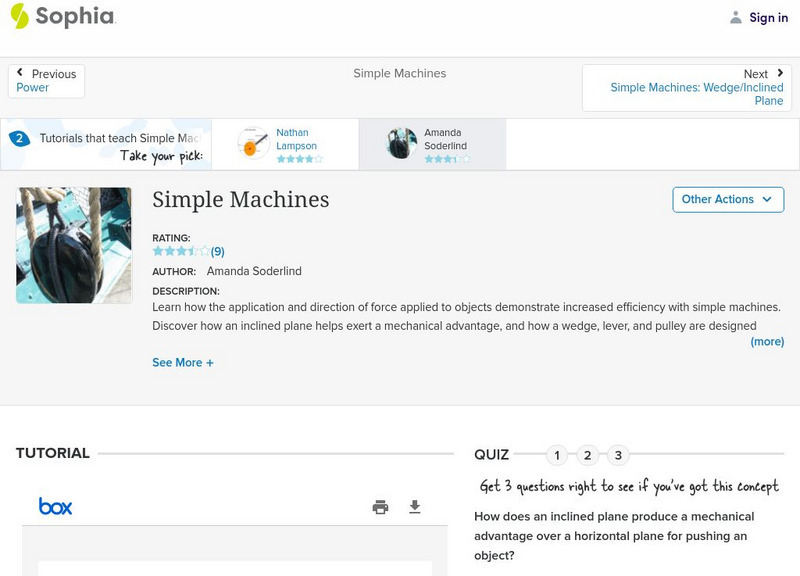Ohio State University
Ohio State Univ.: Simple Machines & Mechanical Advantage [Pdf]
This site details how simple machines create a mechanical advantage for humans. Levers, theoretical mechanical advantage, actual mechanical advantage, and pulley systems are discussed.
Integrated Publishing
Integrated Publishing: Force and Mechanical Advantage
Explains the relationship between force and mechanical advantage with diagrams, examples and calculations.
TeachEngineering
Teach Engineering: Simple Machines
Through a five-lesson series with five hands-on activities, students are introduced to six simple machines - inclined plane, wedge, screw, lever, pulley, wheel-and-axle - as well as compound machines, which are combinations of two or...
Sophia Learning
Sophia: Simple Machines: Levers: Lesson 3
This lesson will introduce the three types of levers and show how to calculate the mechanical advantage of each. It is 3 of 3 in the series titled "Simple Machines: Levers."
Science Education Resource Center at Carleton College
Serc: Levers: How the Human Body Uses Them to Its Advantage
Students will apply the concept of levers to the human body and build all three classes of levers within a musculoskeletal context. They will be shown how the musculoskeletal system is a system of levers and one example of each type of...
TeachEngineering
Teach Engineering: Simple Machines From Pyramids to Skyscrapers
Simple machines are devices with few or no moving parts that make work easier, and which people have used to provide mechanical advantage for thousands of years. Students learn about the wedge, wheel and axle, lever, inclined plane,...
Other
Manhattan Beach Unified School District: Levers and Other Simple Machines
Learn about levers and make the connection between these simple machines and the human body.
Scholastic
Scholastic: Dirtmeister's Science Reporters: The Lever
This site provides a description of the lever and its many uses.
Sophia Learning
Sophia: Simple Machines: Levers: Lesson 2
This lesson will introduce the three types of levers and show how to calculate the mechanical advantage of each. It is 2 of 3 in the series titled "Simple Machines: Levers."
Integrated Publishing
Integrated Publishing: Levers
A quite lengthy chapter on the simple machine the lever. Includes uses, classes, mechanical advantage, formulae, etc. A full discussion, with good illustrations.
My Science Site
Experiments With Levers [Pdf]
This resource details a cooperative learning activity on experimenting with levers. Offers eight different tests students can engage in. A student data sheet is also provided for students to record their findings. This resource is in PDF...
Other
University of Arkansas: Simple Machines
A thorough discussion of all the simple machines, beginning with some thoughts on mechanical advantage and conservation of energy. Very complete. Move down to the section that interests you.
Other
Ontario Council for Technology Education: Designing and Testing a Crane [Pdf]
By the end of this project, students will be familiar with the 6 different simple machines and will be able to identify how these machines are used in products and tools they use on a daily basis. They will investigate how mechanical...
TeachEngineering
Teach Engineering: Splash, Pop, Fizz: Rube Goldberg Machines
Refreshed with an understanding of the six simple machines; screw, wedge, pully, incline plane, wheel and axle, and lever, student groups receive materials and an allotted amount of time to act as mechanical engineers to design and...
Khan Academy
Khan Academy: Simple Machines and How to Use This Tutorial
There are six simple machines. They are as follows: lever, wheel, pulley, incline plane, wedge, and screw. This tutorial will cover the first three.
Texas Education Agency
Texas Gateway: Ap Physics: Statics and Torque: Glossary
This is a glossary of terms and definitions used in Chapter 9: Statics and Torque from the AP Physics online text.
Sophia Learning
Sophia: Simple Machines: Lesson 2
This lesson will introduce the six types of simple machines and show how machines can increase efficiency by reducing work input needed. It is 2 of 2 in the series titled "Simple Machines."
Sophia Learning
Sophia: Simple Machines: Lesson 1
This lesson will introduce the six types of simple machines and show how machines can increase efficiency by reducing work input needed. It is 1 of 2 in the series titled "Simple Machines."
![Ohio State Univ.: Simple Machines & Mechanical Advantage [Pdf] Handout Ohio State Univ.: Simple Machines & Mechanical Advantage [Pdf] Handout](https://d15y2dacu3jp90.cloudfront.net/images/attachment_defaults/resource/large/FPO-knovation.png)
